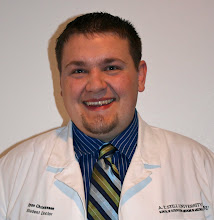* OPINION
* FEBRUARY 26, 2009
We Cannot Delay Health-Care Reform
Universal coverage means healthier people and a more productive economy.
By MAX BAUCUS and EDWARD M. KENNEDY
In his address to the joint session of Congress on Tuesday night, President Barack Obama declared that health-care reform "cannot wait, it must not wait, and it will not wait another year." He is right.
Congress has worked hard with the president over the past weeks to begin restoring our nation's shattered economy, and to bring health care to millions of low-income, uninsured children by passing the economic recovery bill and renewing the Children's Health Insurance Program. These were urgent priorities that demanded immediate attention. Now, it is imperative that we turn our attention to comprehensive health-care reform and move quickly with President Obama to fix our broken system.
For decades, obtaining affordable, high-quality health care has been a heavy weight that millions of Americans have been forced to bear on their own. Increasingly, skyrocketing health-care costs have threatened the stability of families, businesses and our economy as a whole.
The Opinion Journal Widget
Download Opinion Journal's widget and link to the most important editorials and op-eds of the day from your blog or Web page.
Some argue that repairing the health-care system now is impossible, given the urgency and high cost of ending the financial crisis. The claim is that we can fix one problem or the other -- but not both. In truth, the two are inextricably intertwined: Solving the nation's health-care crisis is a fundamental part of healing our economy.
The U.S. spends $2 trillion a year on health care, and that number is expected to double in the next 10 years. America's fiscal situation will remain on shaky ground as long as we continue receiving such poor returns on this crucial investment. If our initial efforts to restore American prosperity are ever to bear true fruit, Congress must follow up by creating a high quality, universally accessible, and cost effective health-care system.
There is also a moral imperative to follow economic recovery efforts with health reform. If Congress can bail out the nation's banks, surely we can help families get the quality, affordable health care they deserve.
Approximately 46 million Americans lack any health insurance at all, according to the Census Bureau. Nearly 25 million more don't have enough insurance to keep their medical bills from sinking them financially. Insurance premiums for a family of four can cost more than $12,000 a year. According to the New America Foundation, that cost could reach $24,000 in 2016 -- an 84% increase from today. At the same time, higher deductibles, larger co-payments and greater exclusions from coverage are causing families to bear more out-of-pocket costs. Debt related to health expenses is now one of the leading causes of personal bankruptcy.
Rising health costs also undermine our strength in the global marketplace. American employers pay far more for health care than their major trading partners, and manufacturers face particularly high pressure to compete internationally. U.S. manufacturers pay $2.38 an hour for health benefits, while manufacturers among our major trading partners pay only 96 cents an hour on average, according to the New America Foundation. Health-care reform is essential to spur growth and keep American businesses on a level playing field with the world.
A reformed health-care system will allow businesses to better afford to offer coverage, and empower every American to choose and purchase insurance plans that fit their budgets. Once universal coverage is reached, the positive effects will be exponential. When every American is covered, the massive costs incurred by doctors and hospitals for treating the uninsured will no longer show up in the premiums of those with health policies. Coverage can become increasingly affordable for all.
The quality of our health-care system, too, demands attention now. Today, even as costs rise, the Rand Corporation has shown that Americans receive the recommended care for their conditions only half of the time. A revitalized system should reward doctors and hospitals for providing effective, efficient care. Cutting-edge health-care technology, better coordination among a patient's various doctors, and efforts to improve care in rural and underserved areas can keep individual patients healthier and make the system work better as a whole.
Health costs also will go down as more people get the preventive care and the timely effective treatments they need.
Health is a public good worthy of major, long-term investment. Our starting point will be the down payment of more than $600 billion that the president included in the budget released today. The challenge of crafting this public policy is certainly large. But just as Congress and the president met the first challenges of restoring our nation's economy, we must also keep our commitment to reforming health care -- now.
Mr. Baucus, a Democratic senator from Montana, is chairman of the Senate Finance Committee. Mr. Kennedy, a Democratic senator from Massachusetts, is chairman of the Senate Health, Education, Labor and Pensions Committee.
Please add your comments to the Opinion Journal forum.
Printed in The Wall Street Journal, page A13
Surgical practice efficiency: How to fix a broken system
-
For years, patients did not complain about their surgical care. They
complained about not getting calls back. The frustrating part was that my
staff was ...
6 hours ago



